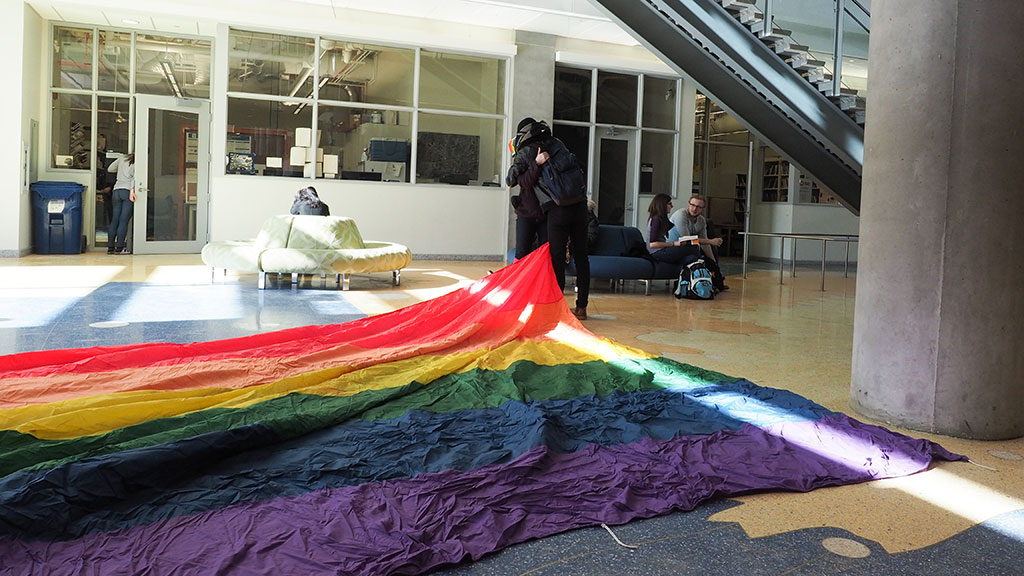New tuition award to pay for an LGBTQ student to study science at U of A
The award will pay four annual payments of $2,500 toward the recipient's studies at the U of A
 Ab Sch
Ab SchA new tuition award is hoping to encourage an LGBTQ student to pursue studies in science, technology, engineering and mathematics (STEM) at the University of Alberta.
The award was created this year by the Lambda Scholarship Foundation Canada — a charity that creates scholarships and bursaries in support LGBTQ studies — who were contacted about the creation of the new award by two anonymous donors. The award is tailored for someone who has contributed to the LBGTQ community and is planning to major in a STEM field.
The recipient of the award will receive four annual payments of $2,500, which will be paid to the U of A registrar to cover the cost of tuition. The deadline to apply for the award is on August 15.
Barbara Freeman, president of the Lambda Scholarship Foundation, said the anonymous donors responsible for the award specified that they want applicants who are interested in entering a STEM field.
“They absolutely want to see more queer people in STEM,” she said. “They are STEM people themselves, and they’ve been through the experience of being a gay person or an LGBT person in STEM, and they don’t feel that there are enough LGBT people in STEM.”
Applicants for the award have to be accepted as a student at the U of A for September 2018 and are required to submit a cover letter outlining their educational goals in STEM studies. Applicants also have to submit a 500-word cover letter outlining their involvement in the LGBTQ community, as well as a reference letter from an LBGTQ leader.
“Your community can be your church, your city, or whatever, but you have to be openly LGBT and the reason for that is we want to be sure that you have made a contribution,” Freeman said.
This is the first year the Lambda Foundation is offering the award at the U of A. Freeman said the foundation is planning to run the award again next year if a winner isn’t selected.
“We’re just doing what we can and hoping the word spreads,” Freeman said. “If it doesn’t work this year, maybe by next year we’ll have it all sorted out.”




